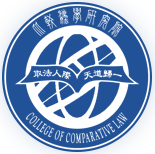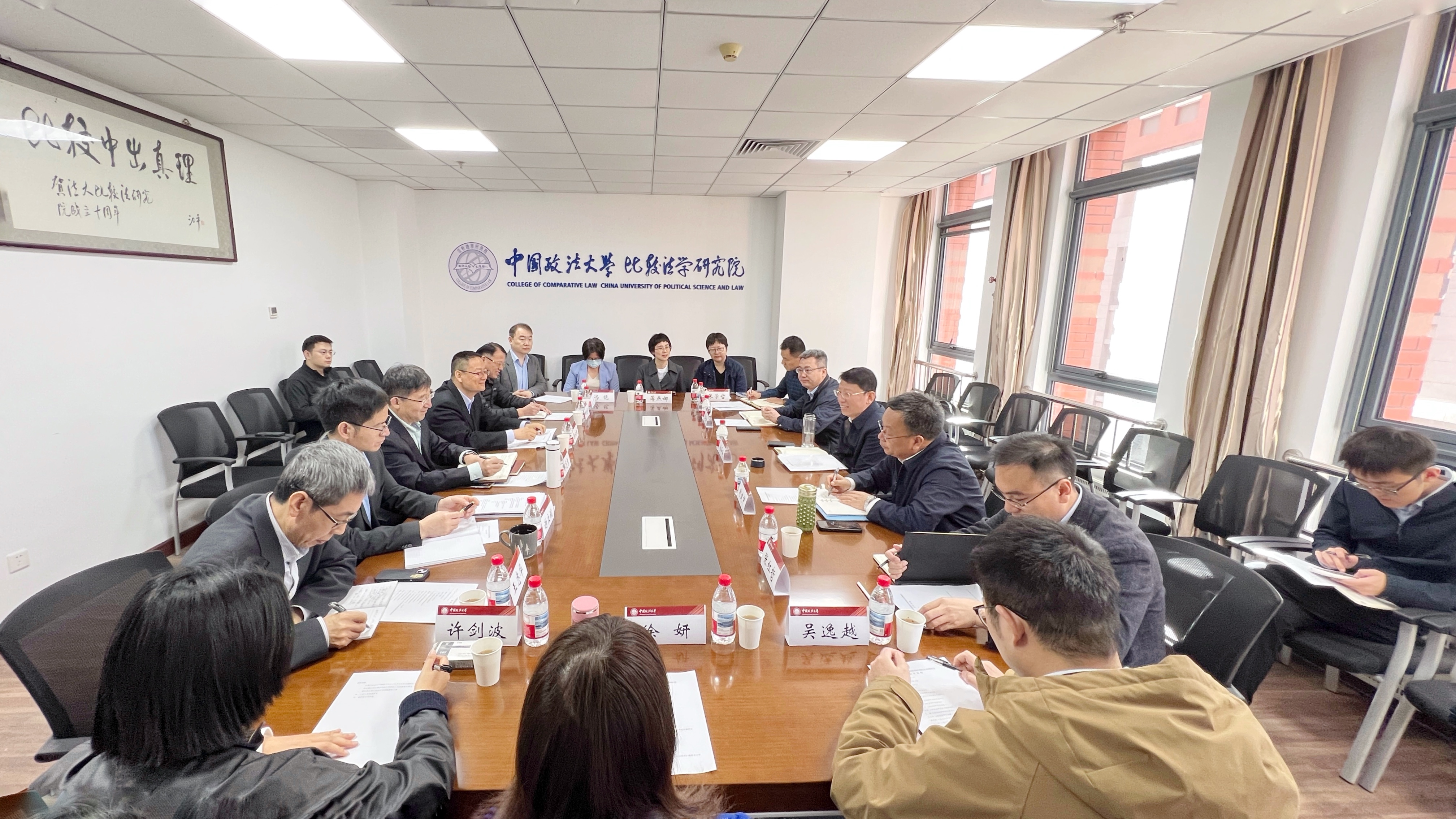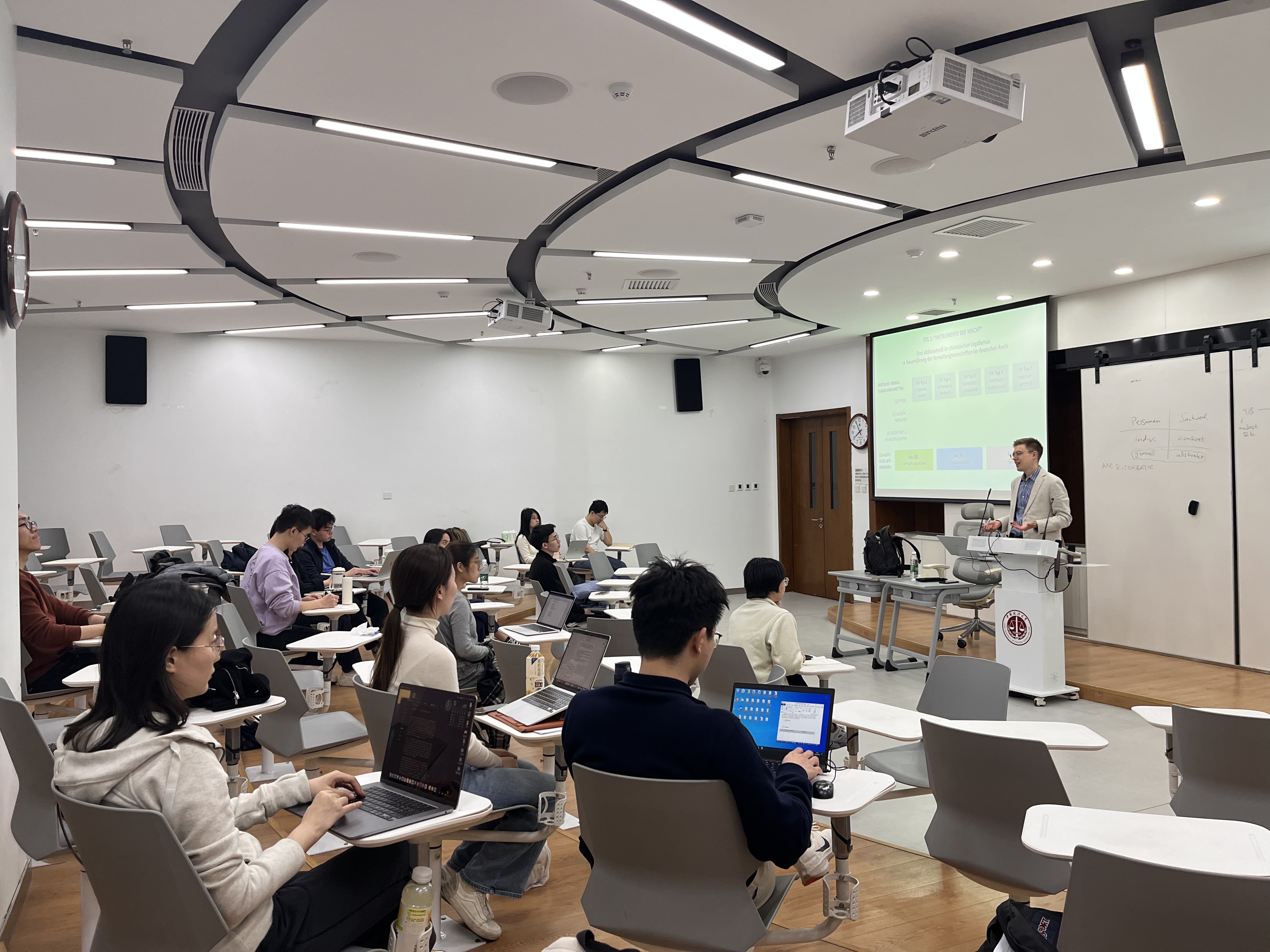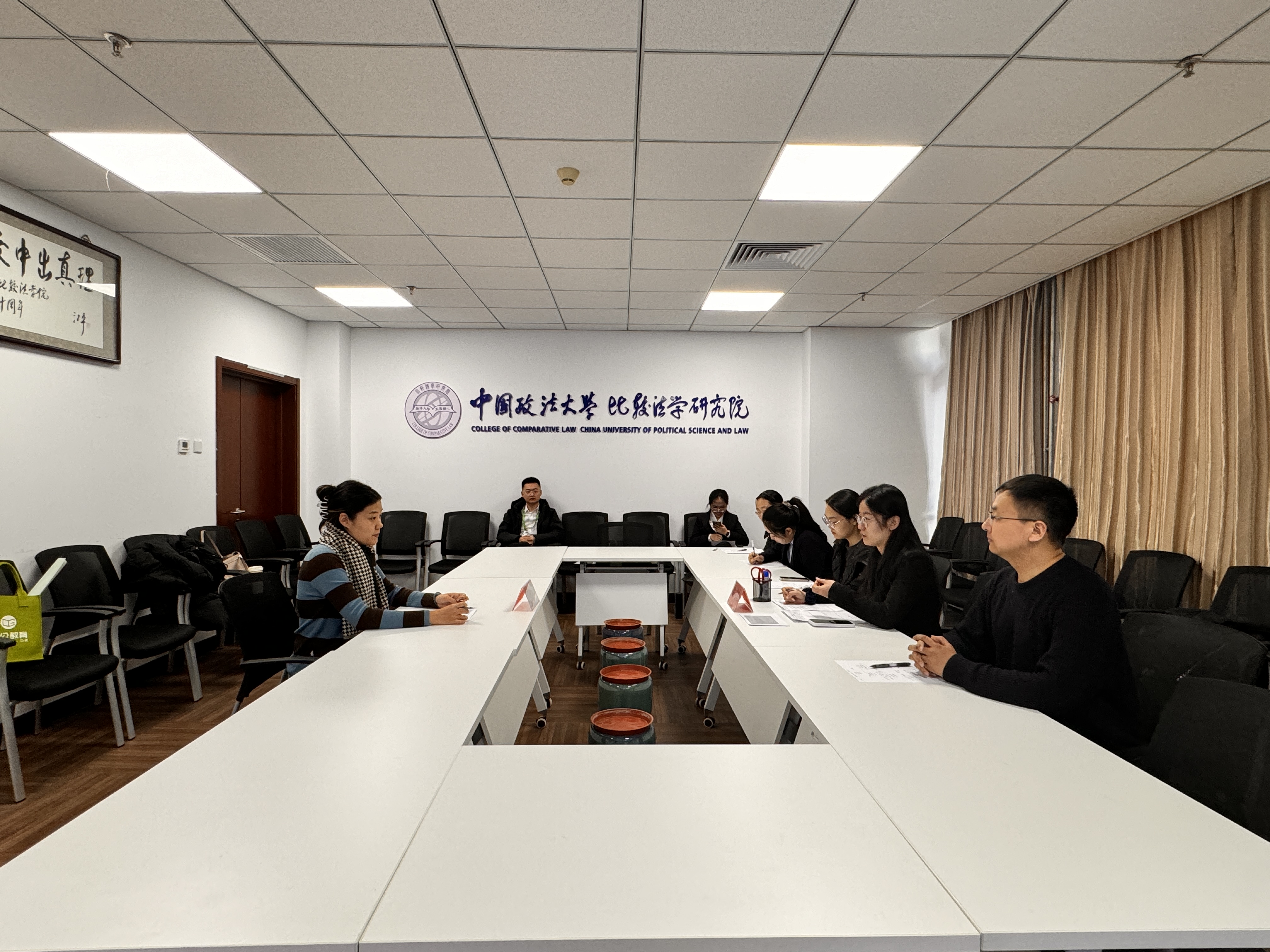The International Symposium on the Legal Risks and Regulation in Artificial Intelligence, hosted by the College and co-organised by the Center for AI Law of CUPL, the Centre for China-Europe/EU Law Studies of CUPL and the Institute of European Law of the College, was successfully held on Haidian campus on 18 Sept, 2024.

Five European experts from institutions such as University of Münster and University of Augsburg, along with nearly 40 Chinese scholars from prestigious institutions including Tsinghua University, Peking University, Renmin University of China, CUPL, Beijing Normal University, University of International Business and Economics, Beihang University, Central University of Finance and Economics, China Labour Relations College, Capital University of Economics and Business, the Law Institute of the Beijing Academy of Social Sciences, Volkswagen (Beijing) Center, and Southwest University of Political Science and Law attended the conference. Additionally, 13 doctoral and master's students also participated in the seminar. This event was funded by the College and the EU Jean Monnet Programme.

The opening ceremony of the conference was presided over by Prof. Zhang Tong, Director of the Centre for China-Europe/EU Law Studies of CUPL and Jean Monnet Chair Professor. Vice President of the University Prof. Shi Jianzhong, former Dean of the Law School of the University of Münster Prof. Reiner Schulze and Dean of the College Prof. Xie Zhiyong delivered speeches respectively, expressing warm congratulations on the opening of the symposium.
The event was divided into morning and afternoon sessions with three modules focusing on the theme of the symposium.
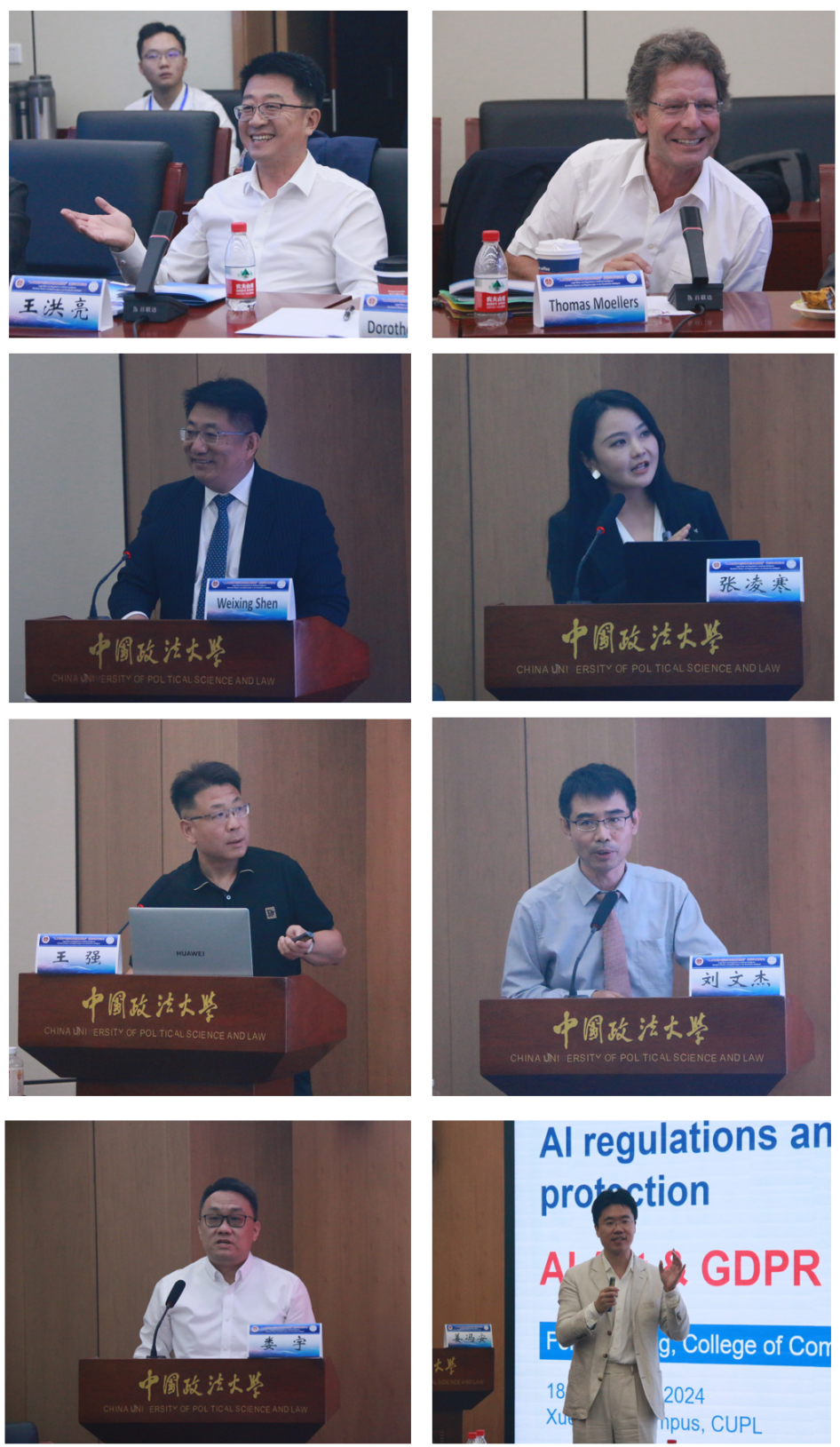
The first session on the Artificial Intelligence Regulation and Data Governance was chaired by Prof. Wang Hongliang, Director of the E-Commerce Law Research Centre of Tsinghua University School of Law. Prof. Thomas M öllers, Executive Associate Dean of the Faculty of Law of the University of Augsburg & Director of the European-Chinese Centre for Legal Research and Innovation & President of the Board of Governors of the Monetary and Exchange Fund of the Deutsche Bundesbank & the EU Jean Monnet Chair Tenure Professor, member of the UN High-Level advisory body on artificial intelligence Prof. Zhang Linghan, from the Institute of Data Law and Rule of Law of CUPL, Prof. Wang Qiang from the School of Foreign Studies of CUPL, and Prof. Wenjie Liu from the College, Director of the Social Law Institute of the School of Civil, Commercial and Economic Law of CUPL, Prof. Lou Yu and Lecturer Jiang Feng'an from the College, respectively made reports related to this topic.
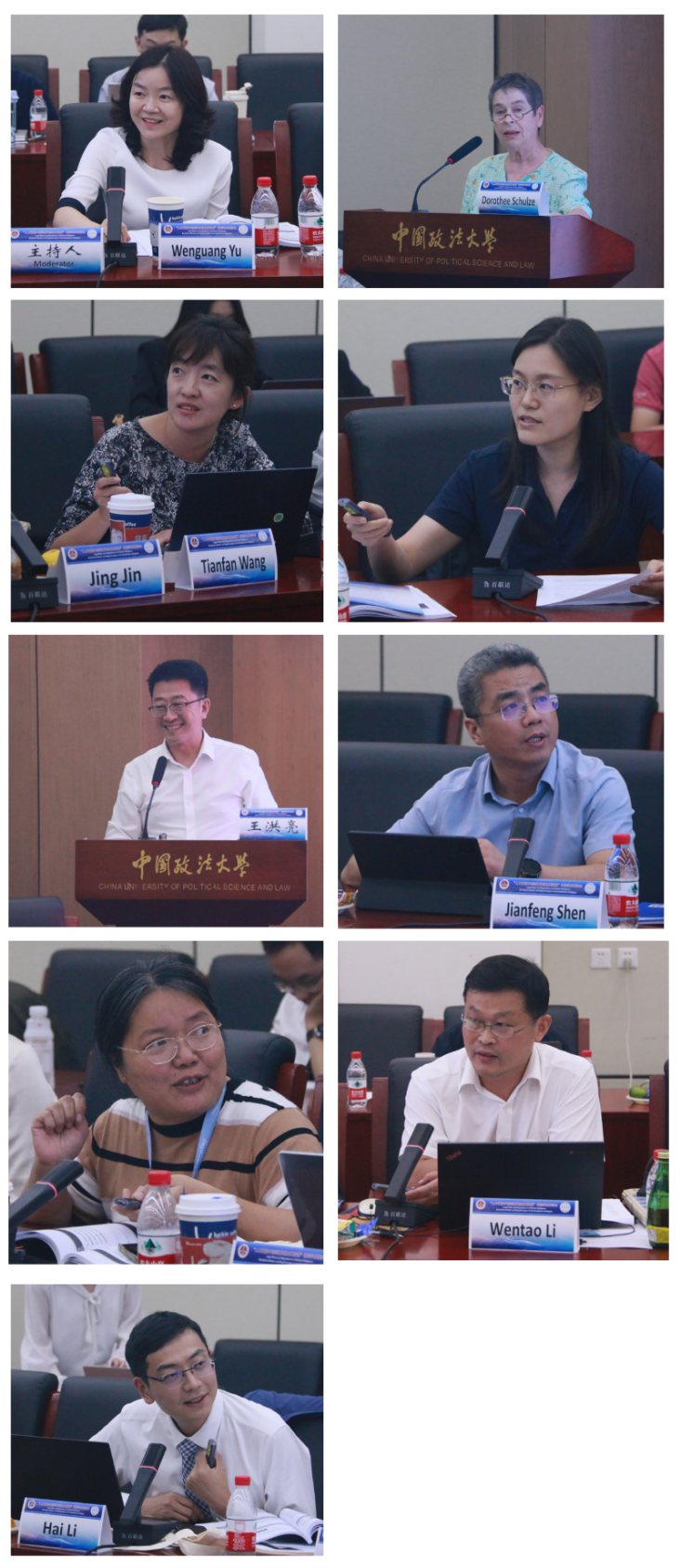
The second session on the Artificial Intelligence Technology, Ethics and Legal Regulation was moderated by Executive Director of the Institute of Sino-German Regulation Law of the Renmin University of China A/Prof. Yu Wenguang. Former Judge of the German district court in Münster Dr. Dorothee Schulze, A/Prof. Wang Tianfan from Beihang University Law School, Lecturer Li Yiyi from the University of International Business and Economics Law School, Prof. Wang Hongliang, Director of the Research Center for Labor Law and Social Security Law of the Law School of Central University of Finance and Economics Prof. Shen Jianfeng, A/Prof. Wang Ping from the Beijing University of Chinese Medicine, Associate Dean of the School of Law of the China Institute of Labor Relations Prof. Li Wentao and Dr. Lihai from the Southwest University of Political Science and Law presented their reports respectively.

The third session on the Protection of Civil Rights and Interests in the Digital Age was presided over by Deputy Director of the Institute of European Law of the College A/ Prof. Zhang Xuezhe. Prof. Reiner Schulze, Associate Dean of the Beijing Normal University Law School Prof. Yuan Zhijie, A/ Prof. Jin Jing from the School of Civil, Commercial and Economic Law of CUPL, Postdoctoral Fellow of Peking University Wu Guide and Dai Junzhe, PhD candidate of Humboldt University of Berlin Law School, gave presentations on the subject respectively.
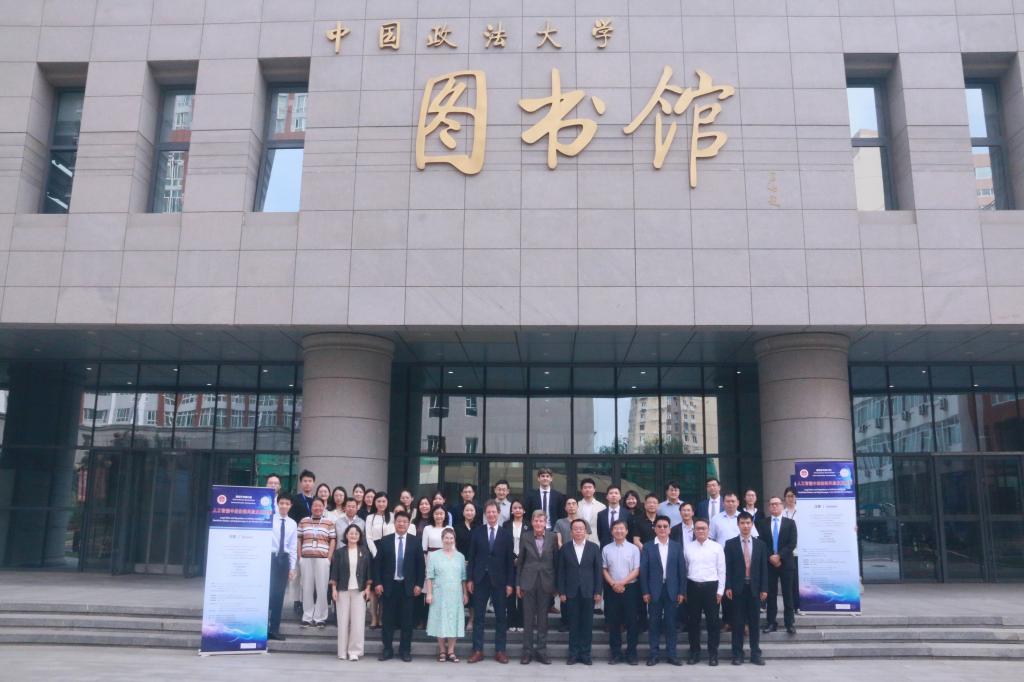
At this symposium, experts and scholars from China and Europe gathered together to launch a multi-dimensional and in-depth discussion on the theme. This academic exchange was not only an in-depth analysis of the existing legislative issues, but also a bold exploration of the future direction of research, reflecting high academic value.





